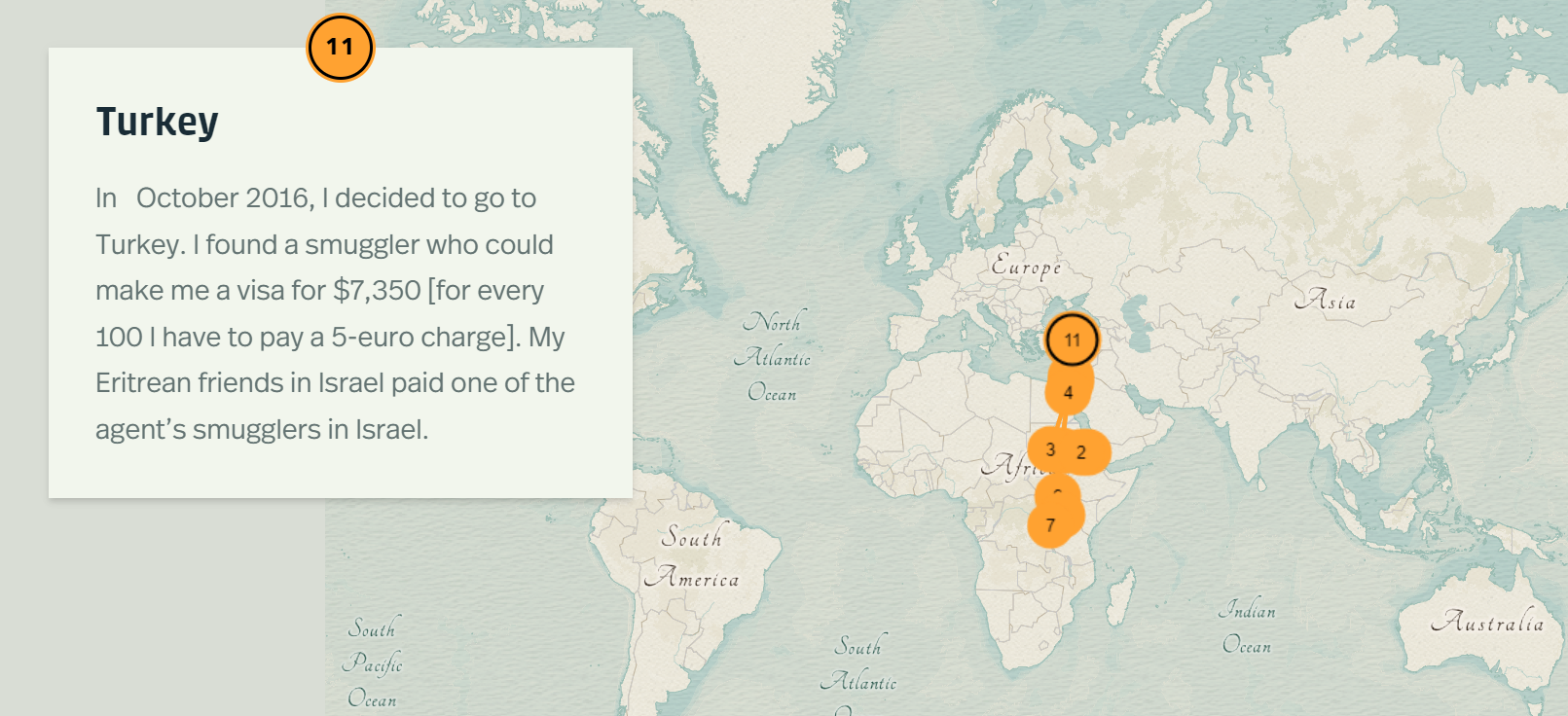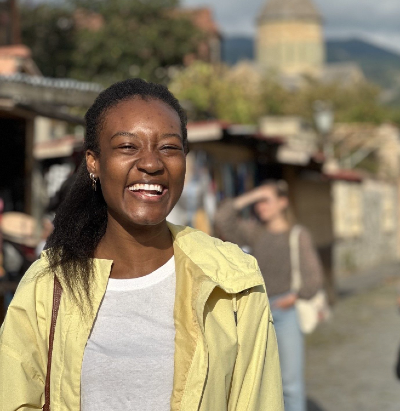Leir Migration Monitor: Migrant Categories in International Law & Practice

What role does international law play in regulating migration? Is there such a thing as “illegal” migration? What does it mean for migration to be “irregular” or “mixed”? Who belongs to the categories of migrant, asylum-seeker, refugee, or asylee? Is there a difference between “trafficking” and “smuggling” of people? Are any of these legally defined terms, or are they merely descriptive?
This briefing provides a first step in understanding the legal situation of people on the move by clarifying some of the relevant terms and providing a brief overview of various categories into which they might fall under international law. Stay tuned here and on our website:

Mapping Migrants, Mapping Money: A man escapes Eritrea, survives kidnapping, makes it to Israel, is returned to eastern Africa, and tries again
The Journeys Project maps the financial biographies of migrants around the world via StoryMaps. This month, we explore the story of Hercules, who fled Eritrea for Sudan, but found himself kidnapped and enslaved in Sinai, Egypt. After his family was able to pay his ransom through the hawala system, Hercules was released into Israel, where he stayed till he was deported to Rwanda. Undeterred, he made it to South Sudan through Uganda, and attempted to make it to Turkey in 2016.
We were slaves. They made me call my family. They forced me to cry on the phone and to beg them for $3,500 so I wouldn’t be killed. Some were asked for $30,000 or even $40,000.

Save the Date: Human Security Award 2023
The Leir Institute will be presenting its fourth biennial Human Security Award to UN Human Security Unit Chief Mehrnaz Mostafavi (F90) on Wednesday, October 25 at 6:00. The event will be moderated by Xanthe Scharff, CEO of The Fuller Project and a member of Leir’s Alumni Advisory Group.
Spotlight: Amanda Borquaye, F22

Amanda is a 2022 MALD graduate. While at Fletcher, she served as a Leir RA, Managing Web Editor of The Fletcher Forum, a co-editor-in-chief of Praxis, and an organizer of the Decolonizing IR Conference. Her fields of study were Human Security and Technology policy, allowing her to focus on how digital platforms and information and communication technologies are shaping migrant journeys and refugee experiences. She currently works in the technical support unit for Mercy Corps. Amanda's role focuses on localization and inclusive development as a pathway for increased protection and resilience in communities displaced and made vulnerable by climate change and conflict.
I'm working on: Streamlining safe programming at Mercy Corps, a global humanitarian and international development organization. Safe programming cuts across protection, accountability to affected persons, and gender equality and social inclusion. This maps onto our organizational strategy to ensure that the communities we work with and within are inclusive and resilient, ones in which all members of a community are regarded with dignity, made safe from harm, and embraced as decision makers in their own futures.
An insight I discovered: I recently learned that sector data shows that refugees and those experiencing displacement report low levels of dignity or having a dignified experience in receiving aid and development assistance. This was devastating to learn. So often in humanitarian emergencies, the emphasis is on responding as quickly as possible. There is much to be done as practitioners in actually administering aid in a dignity-affirming way, whether that means showing up on time when meeting with affected persons, and as always, bringing an intersectional toolkit to adequately address the needs of the most marginalized community members.
I'm passionate about the use of digital tools and technology to strengthen protection for displaced persons. The ability to connect people to digital cash assistance and increased access to information can support individuals and households in making strategic decisions to achieve food security, adopt a new livelihood, and navigate displacement with more information to make the choices that are best for them. Technology has allowed Mercy Corps to scale its reach and impact in response to mass displacement due to climate change.
You can find our content at www.leirbrief.org.
